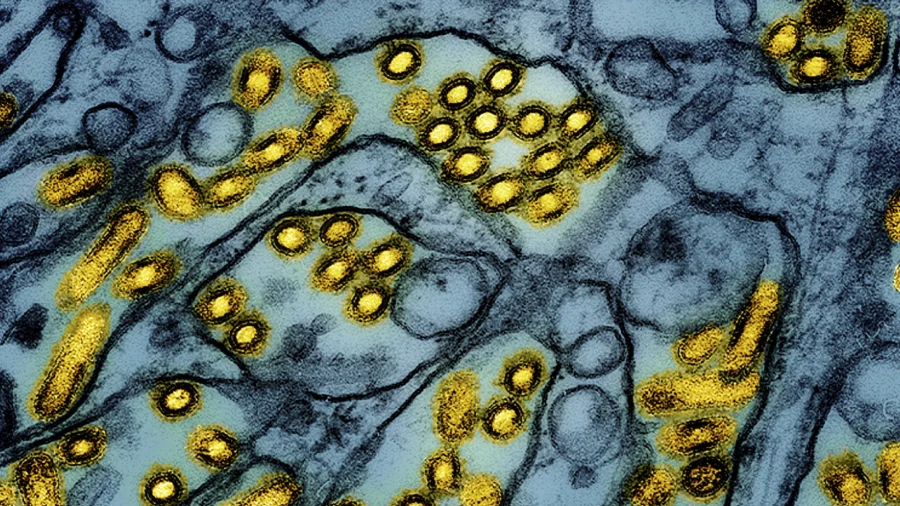Officials in Louisiana on Monday confirmed the first human death from the H5N1 avian influenza in the United States, weeks after the patient was hospitalized.
The patient, who was not identified, is over the age of 65 and was “reported to have underlying medical conditions,” the Louisiana Department of Health said in a statement, adding that the individual contracted H5N1 after being exposed to wild birds and a “non-commercial backyard flock.”
No additional cases of the highly pathogenic form of avian influenza were identified in the state, officials said. There is also no evidence of person-to-person transmission.
This is the only human case of H5N1 in the state, the Louisiana health agency said, while expressing “deepest condolences to the patient’s family and friends as they mourn the loss of their loved one.” No more updates on the patient will be provided, it added.
The virus, also known as Type A H5N1, was detected for the first time in U.S. dairy cattle in March. Since then, bird flu has been confirmed in at least 80 herds in 16 states.
More than 60 people in eight states have been infected, with mostly mild illnesses, according to the U.S. Centers for Disease Control and Prevention. The Louisiana case was the United States’ first known severe illness caused by the virus, health officials said in December.
In November, Canadian officials reported that a teen in British Columbia, Canada, was hospitalized with a severe case of bird flu. CDC officials did not answer a question about whether the new U.S. case and the case in Canada had any similarities or differences, directing queries to Louisiana officials.
Health officials have stressed that bird flu is still mainly an animal health issue and that the risk to the public remains low. No spread of the virus from person to person has been documented in the United States or elsewhere.
At least one state—California—declared an emergency over bird flu in recent weeks. California Gov. Gavin Newsom’s office said that this was precautionary and due to cases found in dairy cattle.
Bird Flu Mutation Likely, CDC Says
Also in December, the CDC said a genetic analysis suggests the bird flu virus had mutated inside the Louisiana patient after federal researchers were able to obtain samples.
“The changes observed were likely generated by replication of this virus in the patient with advanced disease rather than primarily transmitted at the time of infection,” the CDC said.
Officials stressed that the risk of a U.S. avian flu outbreak is still low despite the Louisiana case and its reported mutation.
“The detection of a severe human case with genetic changes in a clinical specimen underscores the importance of ongoing genomic surveillance in people and animals, containment of avian influenza outbreaks in dairy cattle and poultry, and prevention measures among people with exposure to infected animals or environments,” the agency said.
Recommendations
The Louisiana Department of Health recommends that people avoid direct contact with dead or sick animals or their droppings and that people should not bring sick wild animals into their homes. It also advises keeping pets away from sick or dead animals and their droppings.
People should avoid “uncooked or undercooked food” such as poultry, eggs, and “other animal products,” which should be cooked at the proper temperature, according to the health agency.
The CDC says that people should “avoid direct contact with wild birds and observe them only from a distance, if possible” and “avoid contact with wild or domestic birds that appear ill or have died, and call to report sick or dead birds.”
Both the state agency and CDC recommend that people not consume raw, unpasteurized milk or products made from raw milk.
The Associated Press contributed to this report.
From The Epoch Times

